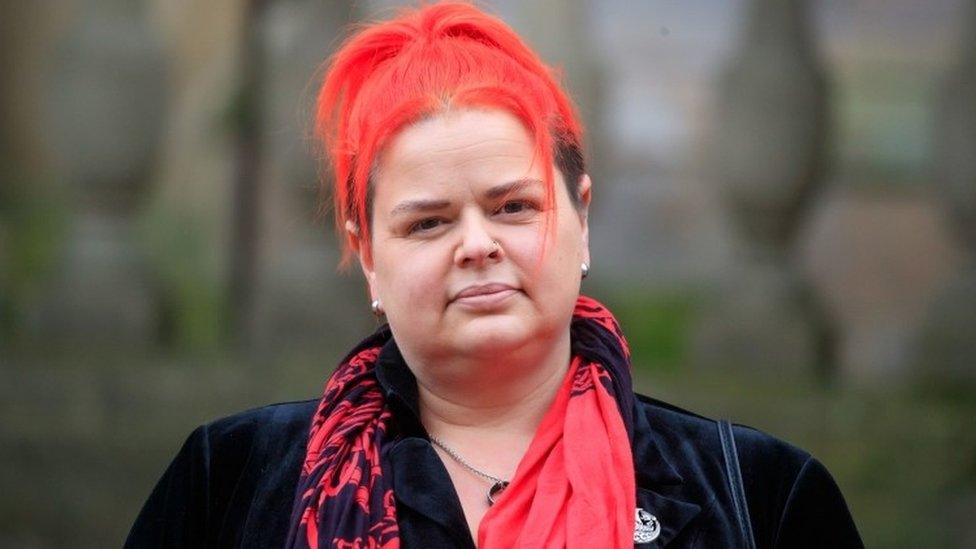Widow's smart motorway messages to politicians
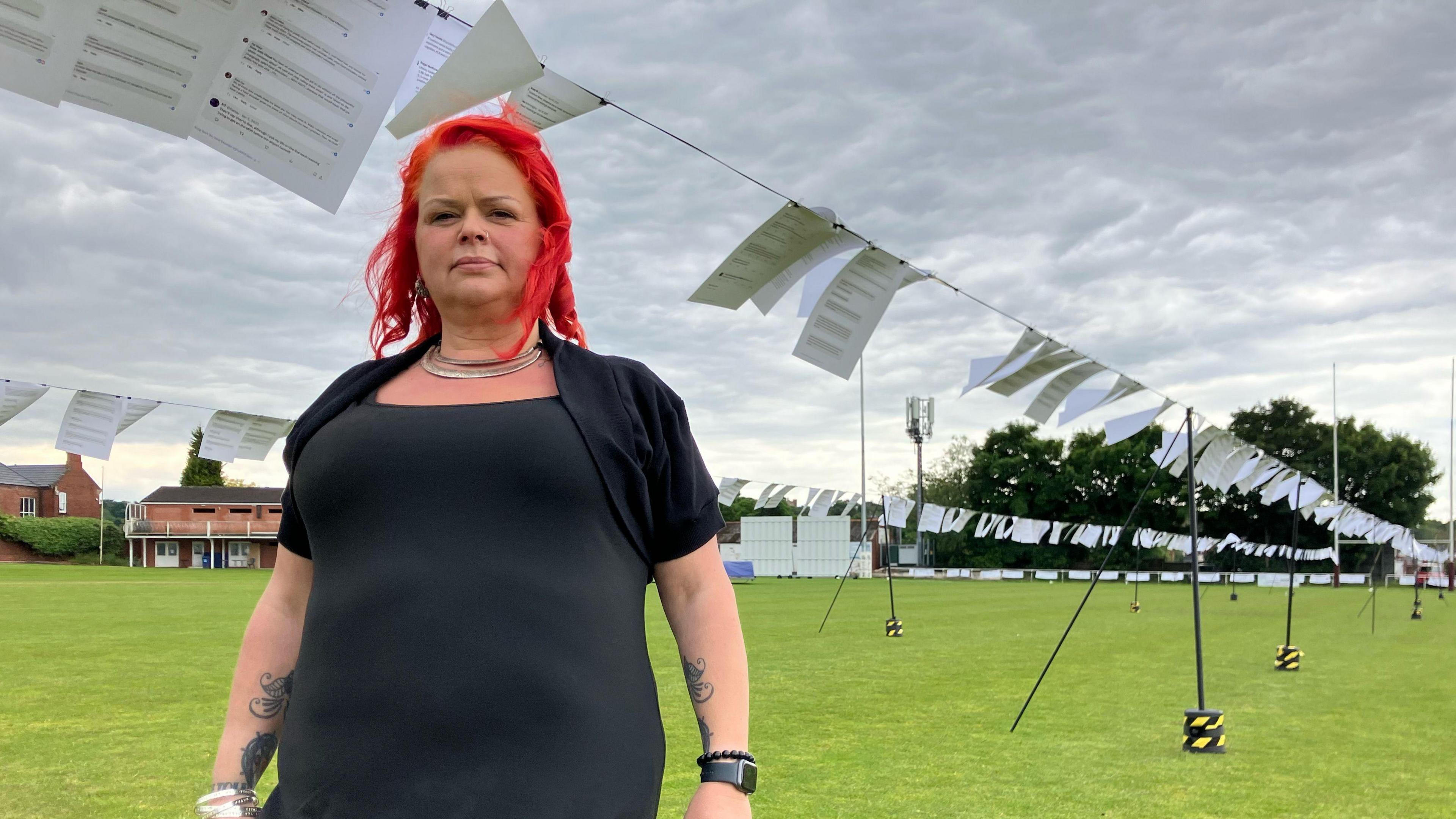
Claire Mercer's husband Jason died on the M1 near Sheffield in 2019
- Published
The widow of a man killed on a section of smart motorway has put together an exhibition featuring comments from people concerned about the roads' safety.
Claire Mercer, whose husband Jason died on the M1 near Sheffield in June 2019, said she had wanted to show politicians how unwanted smart motorways were.
The screenshots were put on display around the rugby pitch at Rotherham Titans' ground, where Mr Mercer was a season ticket holder.
Mrs Mercer said some of the comments made by contributors highlighted "many terrifying experiences people had on smart motorways".
Smart motorways are stretches of road where technology is used to try to regulate traffic flow and ease congestion.
There are currently 193 miles of what is called "all-lane-running" motorway - this means the hard shoulder has been permanently removed to provide an extra lane.
The hard shoulder is sometimes open to traffic on another 63 miles of smart motorway, while there are a further 140 miles of the network where the hard shoulder has been retained.
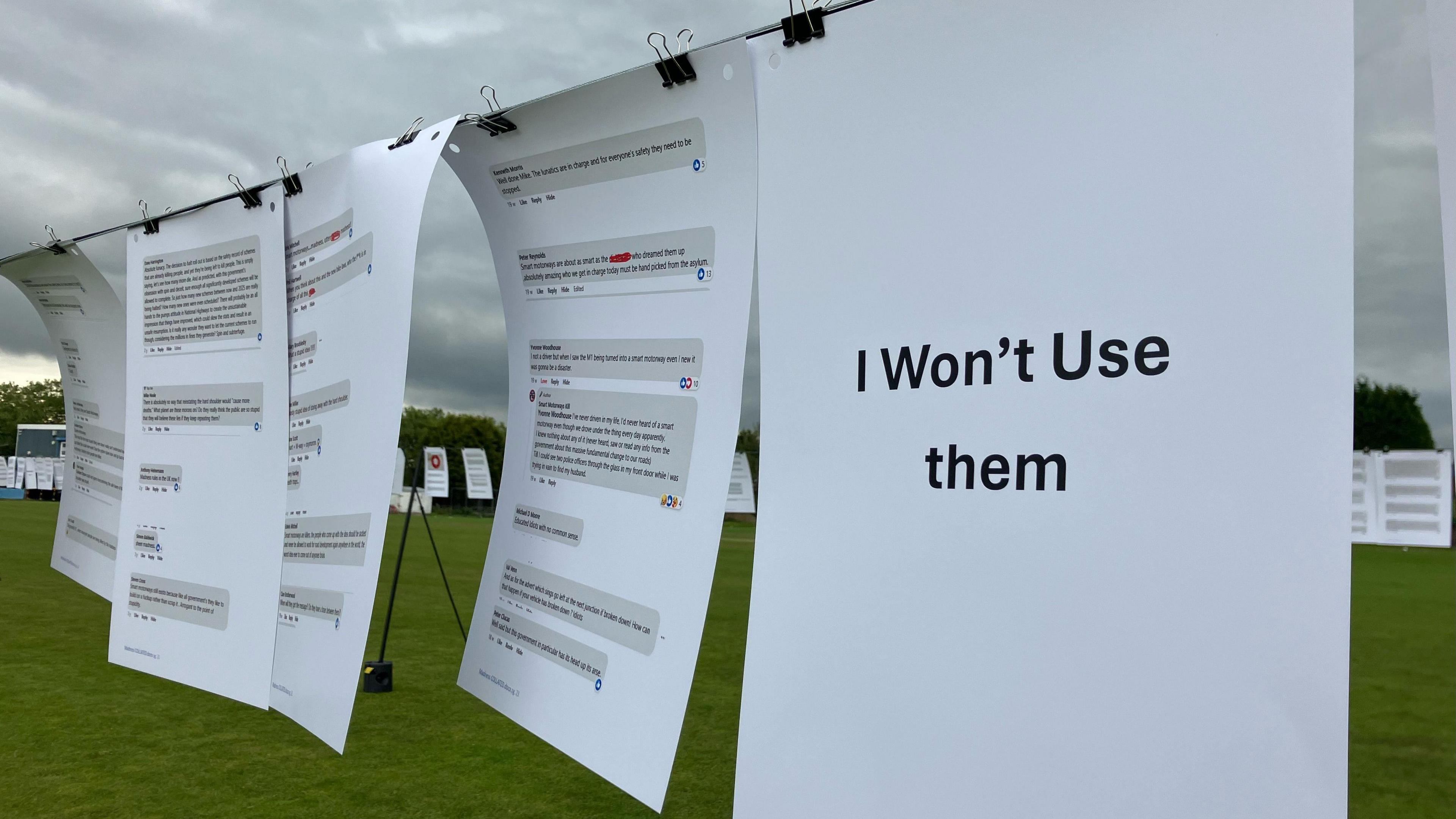
The messages about smart motorways were put on show at Rotherham Titans' ground
Some parts of the smart motorway network in South Yorkshire, where the hard shoulder has been removed and replaced with a live lane, are having new emergency areas installed in a bid to improve safety.
Mrs Mercer said the exhibition was already planned before the general election was called and it was being put on in a bid to show prospective MPs what messages people had sent to her group, called Smart Motorways Kill.
Messages pinned to the line included one person calling smart motorways "madness", while another called for them to be stopped.
Other messages mentioned fears over “who to grab first” in the event of a breakdown and concerns about discrimination against people with disabilities.
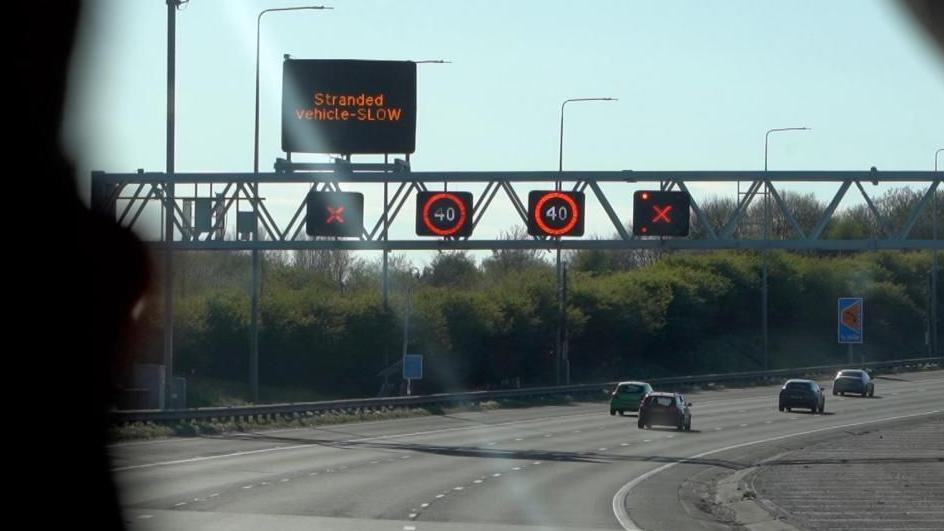
Technology is used on smart motorways to try to regulate traffic flow and ease congestion
Mrs Mercer said the strength of feeling and number of messages about smart motorways had only increased over the years.
She said: “I started by flicking through as many emails and messages as possible and picking out common themes.
"They ranged from 'boycott the first lane' to details of the many, many terrifying experiences people had on smart motorways."
She added that she was forced to limit the date range of messages to just the last two years "because the number of messages sent - and still coming in - would make gathering and displaying of all this impossible".
Mrs Mercer said she hoped politicians would understand the strength of feeling from drivers, adding: "This is our day-to-day. People have to use motorways day in, day out for the mundane, normal things."
Responding, a National Highways spokesperson said the organisation's data "continues to show that, overall, all three types of smart motorway are safer than conventional motorways in terms of deaths or serious injuries."
Meanwhile, a Department for Transport spokesperson said the government had recognised public concerns and had already cancelled plans for all new smart motorway schemes.
Follow BBC Yorkshire on Facebook, external, X (formerly Twitter), external, and Instagram, external. Send your story ideas to yorkslincs.news@bbc.co.uk, external.
Related topics
- Published22 April 2024
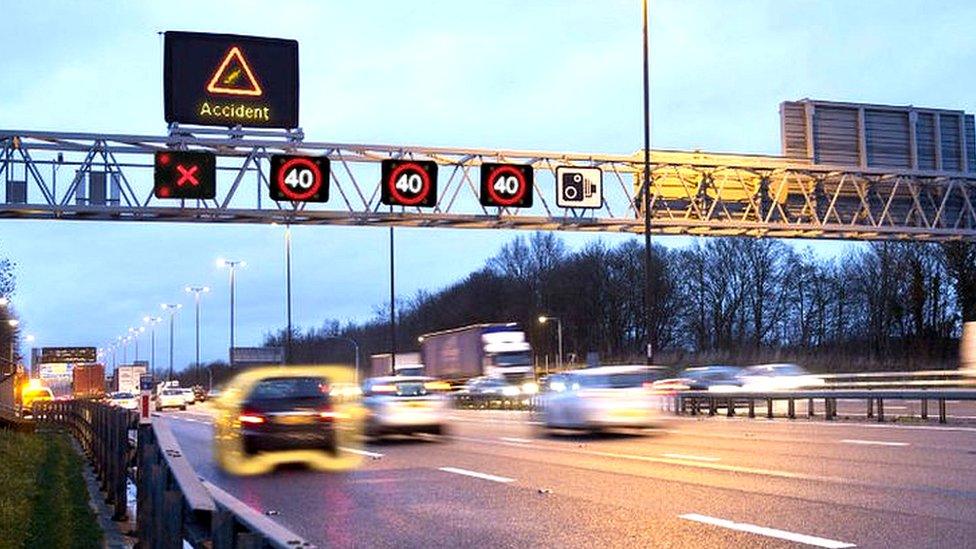
- Published22 April 2024
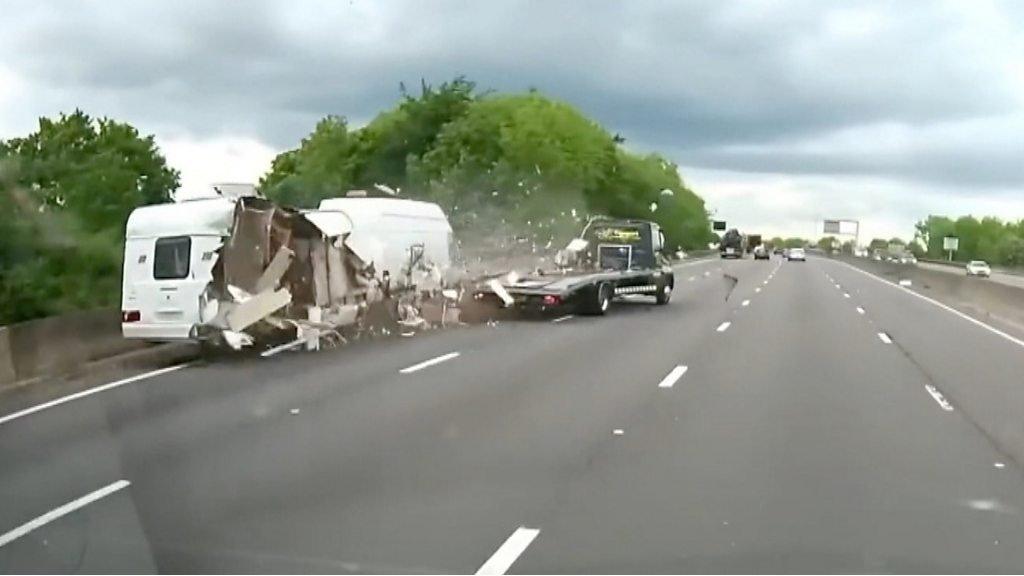
- Published26 February 2024
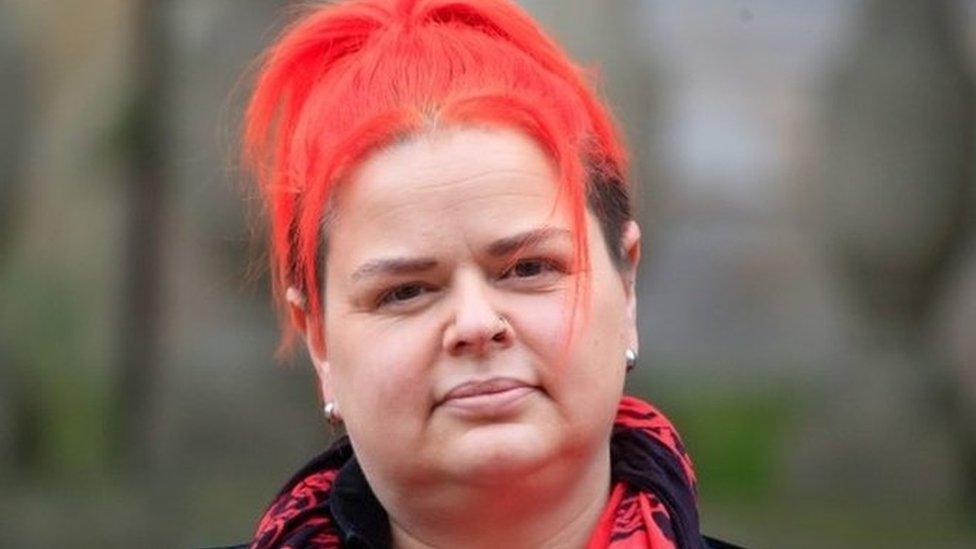
- Published2 April 2024
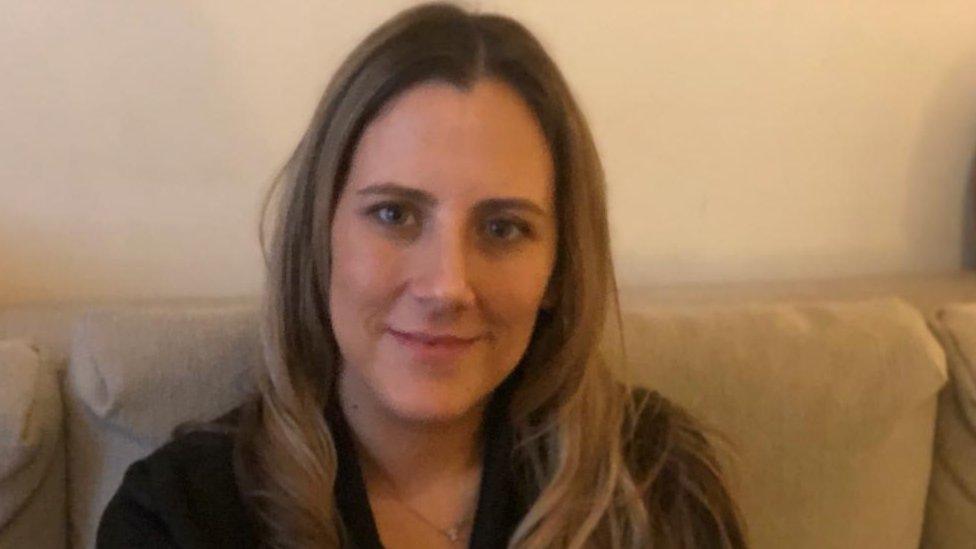
- Published19 January 2024
